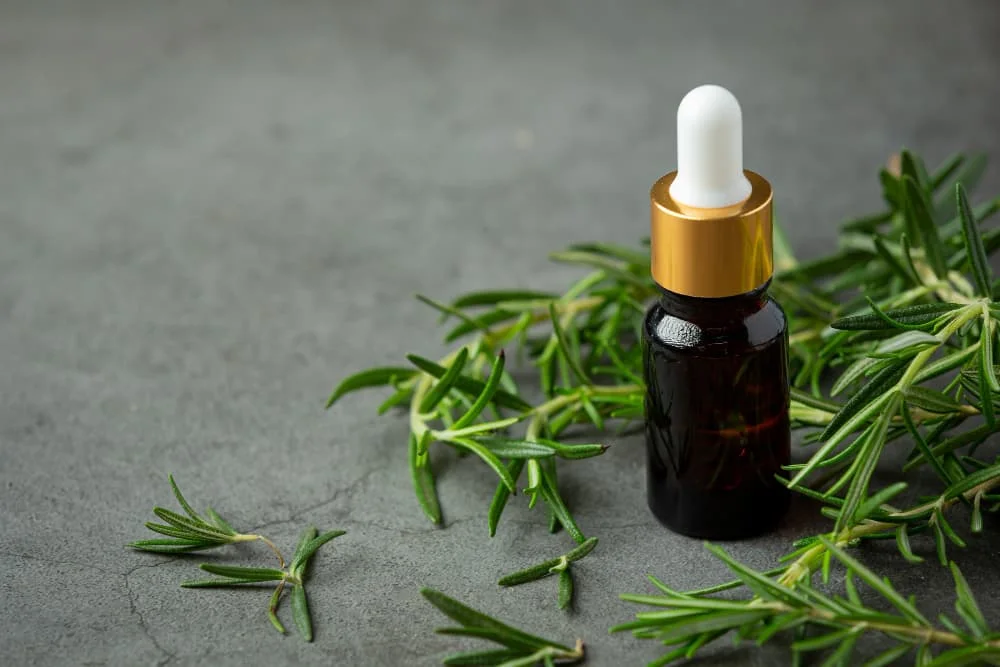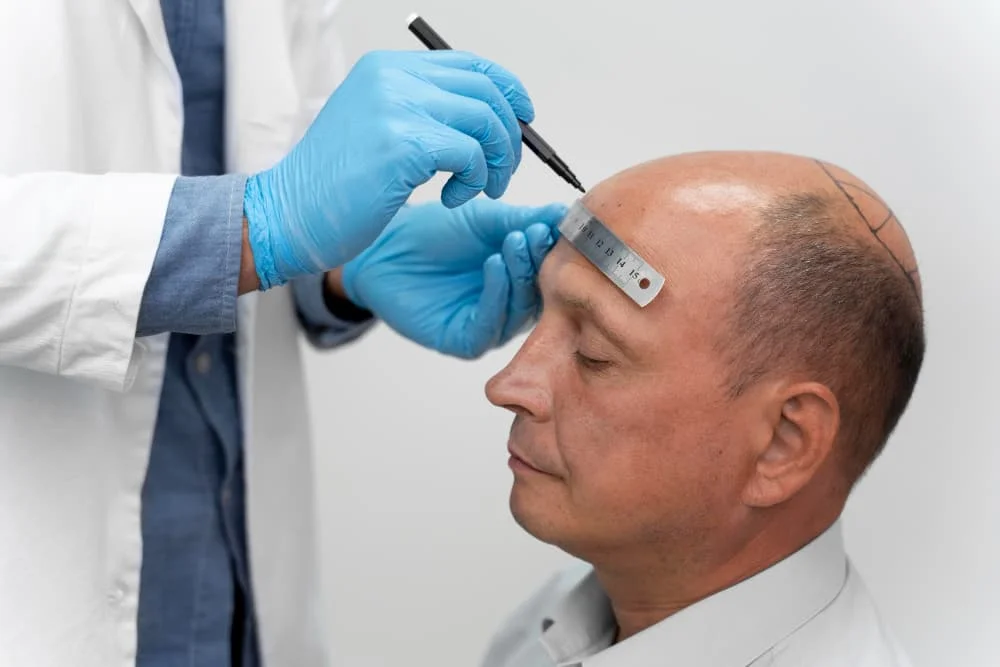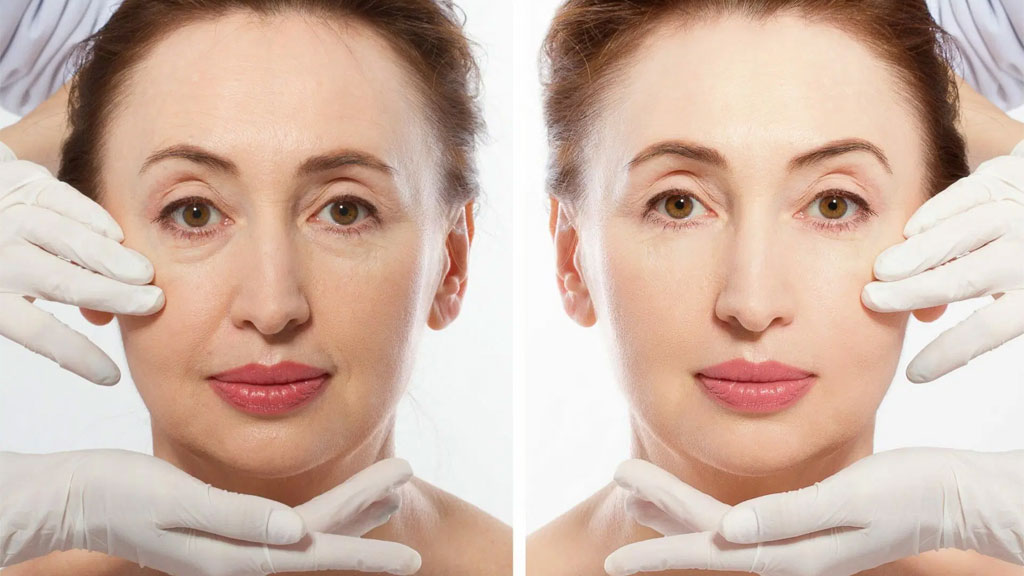
Rosemary oil is a natural oil that has been used in traditional medicine for centuries and has recently attracted attention in hair care. Known for its powerful antioxidant and anti-inflammatory properties, this herbal oil offers several benefits, such as reducing hair loss, promoting hair growth, and improving scalp health. But is rosemary oil truly effective against hair loss, or is it just a myth?
In this article, we will examine the effects of rosemary oil on hair health in detail based on scientific studies and explore how it can play a role in combating hair loss. Additionally, we will provide information on how to properly use rosemary oil and what to consider during application.
What Is Rosemary Oil, and What Are Its Benefits for Hair?
Rosemary is an aromatic and medicinal plant native to the Mediterranean climate. Rosemary oil is obtained from the leaves of this plant and contains many beneficial components, such as antioxidants, anti-inflammatory compounds, and essential oils. Its effects on hair health have gained increasing attention in recent years. Here are some of its benefits:
Reducing Hair Loss
Rosemary oil is supported by various scientific studies that indicate it helps reduce hair loss. According to these studies, rosemary oil can inhibit the effects of DHT (dihydrotestosterone), a hormone that is one of the primary causes of hair loss. DHT causes hair follicles to shrink and shortens the hair growth cycle, leading to hair loss. Rosemary oil, by reducing the effect of DHT, can slow down or even stop hair loss.
Additionally, rosemary oil has been shown to be effective in types of hair loss such as androgenetic alopecia (male-pattern baldness) and alopecia areata (patchy hair loss).
Promoting Hair Growth
Rosemary oil can promote hair growth, a feature linked to its ability to stimulate hair follicles and increase blood flow to the scalp. The increased blood flow to the follicles ensures more nutrients and oxygen reach the roots, supporting stronger and healthier hair growth. Studies have also found that rosemary oil can be helpful in stimulating new hair growth.
Treating Dandruff and Scalp Issues
Due to its anti-inflammatory and antifungal properties, rosemary oil can help alleviate scalp issues such as dandruff, scalp irritation, and itching. This natural oil improves scalp health by reducing inflammation and preventing fungal infections, thereby supporting overall hair health.
Improving Hair Appearance
Rosemary oil also has the ability to improve the appearance of hair. It moisturizes hair, prevents breakage, and adds shine. By coating hair strands like a protective shield, it reduces moisture loss, resulting in healthier, shinier hair. Additionally, it strengthens hair strands, helping prevent split ends and weakness.
Does Rosemary Oil Really Promote Hair Growth?

Does Rosemary Oil Really Promote Hair Growth?
There are numerous personal experiences and anecdotes about rosemary oil’s effectiveness in reducing hair loss and promoting hair growth. However, it is worth investigating whether these claims are supported by scientific research. Does science truly back up the benefits of rosemary oil for hair?
What Does Scientific Research Say?
Some scientific studies point to the potential of rosemary oil to increase hair growth. For example, a study conducted in 2015 observed that rosemary oil significantly increased hair growth in people with androgenetic alopecia (male-pattern baldness). In this study, rosemary oil was compared to minoxidil, a common hair loss treatment, and both treatments were found to deliver similar results.
Another study showed that rosemary oil promotes hair growth and reduces hair loss in individuals with alopecia areata (patchy hair loss). According to this study, rosemary oil supports hair growth by reducing scalp inflammation and stimulating hair follicles.
How Does Rosemary Oil Promote Hair Growth?
Several mechanisms have been proposed regarding how rosemary oil contributes to hair growth:
- Increases Blood Circulation: It helps increase blood circulation in the scalp, which delivers more nutrients and oxygen to hair follicles. This increased blood flow strengthens the hair follicles, supporting hair growth.
- Promotes Cell Regeneration: By accelerating cell regeneration in the hair follicles, it supports the hair growth cycle, leading to faster and stronger hair growth.
- Antioxidant Effect: Rosemary oil contains powerful antioxidants. These antioxidants protect hair follicles from damage caused by free radicals, contributing to healthier hair growth.
- Anti-inflammatory Effect: It can effectively reduce inflammation in the scalp, helping prevent hair loss. By soothing inflammation in the scalp, it ensures healthier hair follicles.
Conclusion: Myth or Reality?
The potential of rosemary oil to promote hair growth is supported by several scientific studies conducted so far. However, more research is still needed in this area. Rosemary oil can be an effective option for those who want to fight hair loss naturally. However, if your hair loss problem is severe or caused by other factors, rosemary oil alone may not be sufficient.
If you are considering using rosemary oil for hair loss, the best approach is to consult a doctor. This way, you can get accurate information about the cause of your hair loss and the most suitable treatment options.
How to Apply Rosemary Oil to Hair

There are several ways to apply rosemary oil to your hair, and each method is highly effective for supporting hair health. Here are the most common and effective ways to incorporate this natural oil into your hair care routine:
1. Direct Application (Scalp Massage)
In this method, you can apply the oil directly to your scalp to strengthen hair follicles:
- Take a few drops of rosemary oil in your palm.
- Gently massage it into your scalp using circular motions with your fingertips.
- Let it sit for at least 30 minutes to allow the oil to penetrate the scalp.
- Then wash and rinse your hair with a suitable shampoo.
You can perform this procedure 2-3 times a week to reduce hair loss and support hair growth.
2. Mix with Shampoo and Conditioner
You can enhance your hair care routine by mixing rosemary oil with your existing shampoo or conditioner:
- Take a small amount of your shampoo or conditioner in your hand.
- Add a few drops of rosemary oil and mix.
- Apply this mixture to your hair and scalp.
- Leave it on for a few minutes, then rinse your hair thoroughly.
By using this method each time you wash your hair, you can regularly benefit from the positive effects of rosemary oil.
3. Use Products Containing Rosemary Oil
Shampoos, conditioners, serums, and masks that contain rosemary oil provide a convenient way to incorporate this oil into your hair care. When using such products, make sure that rosemary oil is present in a significant amount in the ingredient list.
Which Method to Choose?
When applying the oil, it is essential to select a method that suits your hair type and scalp sensitivity. If your scalp is sensitive, consider mixing the oil with shampoo or conditioner instead of applying it directly for a gentler treatment.
Rosemary oil can be an effective aid in reducing hair loss and supporting healthy hair growth. Whichever method you choose, regular application will allow you to benefit the most from this natural oil.
Points to Consider When Using Rosemary Oil
Although rosemary oil is generally considered a safe product, there are certain situations in which you need to be cautious. Here are some important points to keep in mind when using rosemary oil:
1. Allergy and Sensitivity
As with any new product, it’s crucial to perform an allergy test before using rosemary oil. You can do this test as follows:
- Place a few drops of oil on the inside of your wrist.
- Wait for 24 hours and observe if any reaction occurs, such as redness, itching, or irritation.
- If you notice any adverse reaction, avoid using rosemary oil.
This test is important to detect any potential skin sensitivities beforehand and to prevent irritation.
2. Interaction with Other Products and Medications
When using rosemary oil, it’s important to be mindful of its interactions with other products and especially with medications:
- If you are taking medications like blood thinners or have conditions like high blood pressure, consult your doctor before using rosemary oil. The oil can have adverse interactions with certain medications.
- Additionally, be cautious before using rosemary oil in combination with other essential oils or skincare products. Some products may interact and cause skin irritation. Therefore, consulting a specialist for safe use can be beneficial.
3. Quality and Purity
The quality of the oil is crucial for you to get the best benefits:
- Make sure to use high-quality and pure rosemary oil. Oils obtained from organically grown plants and extracted using the cold-press method are the most natural and effective options you can choose.
- Also, select dark, airtight containers to store the oil. These containers help preserve the oil’s quality and enhance its effectiveness.
By paying attention to these critical points, you can maximize the benefits of this natural product and support your hair health.
Recent Posts
-
 Effective Solutions for Seasonal Hair Loss: What Treatments to Consider04 Feb 2025
Effective Solutions for Seasonal Hair Loss: What Treatments to Consider04 Feb 2025 -
 Does the Density of Hair Transplants Matter? Achieving a Full Look04 Feb 2025
Does the Density of Hair Transplants Matter? Achieving a Full Look04 Feb 2025 -
 Look Younger: Mini Facelift and Neck Rejuvenation02 Feb 2025
Look Younger: Mini Facelift and Neck Rejuvenation02 Feb 2025 -
 Can Ozone Therapy Really Boost Your Mood and Energy Levels?02 Feb 2025
Can Ozone Therapy Really Boost Your Mood and Energy Levels?02 Feb 2025 -
 Say Goodbye to Static: How to Get Rid of Static in Hair29 Jan 2025
Say Goodbye to Static: How to Get Rid of Static in Hair29 Jan 2025

